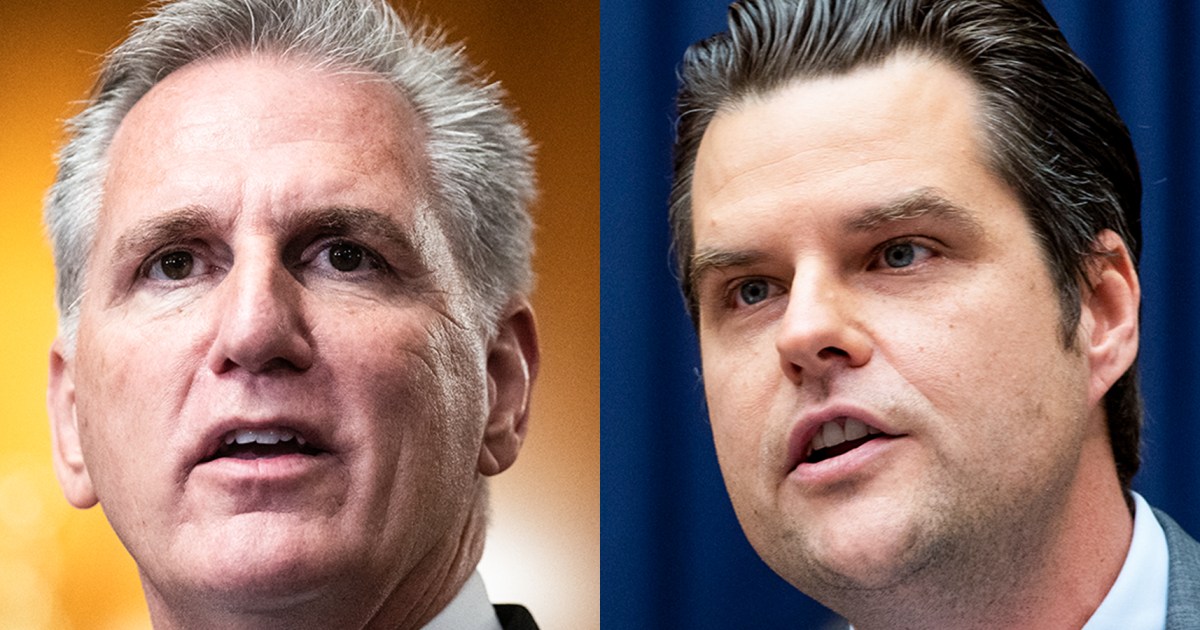We begin today with Chris Geidner of the “LawDork” Substack stating that the U.S. Supreme Court must state that Number 45 engaged in insurrection on Jan. 6, 2021.
Over the coming month, a handful of lawyers will be arguing in briefs at the U.S. Supreme Court, and then at oral arguments on Feb. 8, that the justices must reverse the Colorado Supreme Court’s decision holding that Trump “engaged in insurrection,” is disqualified from being president under Section 3 of the Fourteenth Amendment, and can be barred under Colorado law from appearing on Colorado’s primary ballot.
Some of the arguments being brought forth — like whether the president is an “officer” subject to Section 3 of the Fourteenth Amendment — are weak and ultimately show how much weaker other arguments are. Arguments about whether states have the authority to act as Colorado has done, meanwhile, are arguments about the implementation of the amendment. I don’t think they’re successful either, but they’re (more or less) arguments being made by lawyers engaged in lawyering about issues not previously implemented in this way.
Those lawyers, however, who go so far — as Trump’s lawyers did in their petition for certiorari — as to argue that Trump did not engage in insurrection at all are failing the law, the court, and the nation.
The Supreme Court should affirm the Colorado Supreme Court’s decision, but — given that they granted certiorari in response to Trump’s petition — they should do so in an opinion concluding specifically and explicitly what we all know to be true: Donald Trump engaged in insurrection three years ago today.
Adam Serwer of The Atlantic takes note of the fine line between the political and legal merits of Anderson v. Griswold; the Colorado Supreme Court case that said Trump was disqualified for Colorado primary ballots.
In the history of self-defeating euphemisms, Jonathan Chait’s characterization of Donald Trump’s failed coup as an attempt to “secure an unelected second term in office” belongs in the hall of fame, alongside George W. Bush’s “weapons of mass destruction–related program activities” or Kellyanne Conway’s “alternative facts.” […]
When writing that line, Chait, like many other liberal writers, was alarmed by the Colorado Supreme Court’s decision disqualifying Trump from the ballotbased on Section 3 of the Fourteenth Amendment, which bars from political office those who have sworn an oath to the Constitution and subsequently engaged in “insurrection or rebellion.” Although Chait curiously insisted that he wouldn’t “comment on the legal merits of the case,” he managed to somehow zero in on one of the main legal points at issue, which is whether Trump’s behavior “constitutes ‘insurrection.’” […]
There are many compelling political reasons not to disqualify Trump under the Fourteenth Amendment, among them the potential implications of removing the immense decision of who gets to be president from the electorate’s control. But to oppose his removal on legal, not political, grounds is to, in a circuitous way, make the same argument as Trump himself: that he is above the law—that the constraints of the Constitution apply to others but, for some reason, not to him.
David Montgomery and Kathy Frankovic of YouGov look at a YouGov/Economist poll that shows that most Americans think that they should be able to decide for themselves whether an insurrectionist belongs on the presidential ballot.
The latest Economist/YouGov poll from December 31, 2023 – January 2, 2024 asked Americans whether voters, the courts, and Congress should be able to determine if Donald Trump should be able to run for president in 2024. Respondents could select multiple options. 62% of Americans said voters should be able to determine whether Trump runs again, including majorities of Democrats and Independents, and 75% of Republicans.
Fewer Americans — 42% — said the courts should be able to make that determination. That includes 55% of Democrats, but just 28% of Republicans.
Only 20% said Congress should be able to determine Trump’s eligibility.
Many Americans who think voters should be able to decide also think the courts or Congress should have a say: 31% of those who think voters should decide also say the courts should be able to decide, and 21% say Congress should also be able to.
So according to this poll, there should be no explicit PROHIBITION of who is allowed to run for president or any other office…if you get my drift on that.
Peter Grier and Sophie Hills of The Christian Science Monitor look at how easy (or difficult) it would be for Trump to become a dictator if he wins the 2024 presidential election.
As the Iowa caucuses and the official beginning of the 2024 election cycle arrive, the question of whether a second Trump term would result in the collapse of American democracy as we know it has gripped much of official Washington and U.S. pundits and political insiders.
Mr. Trump’s own words have fed this narrative. Among other things, he’s dehumanized political opponents as “vermin” who need to be exterminated, proposed that shoplifters be shot, said immigrants are “poisoning the blood of our country,” and suggested that former Chairman of the Joint Chiefs of Staff Mark Milley should be executed after a trial for treason.
His critics say those words should be considered against the background of past actions. They point to what the former president actually did in the wake of the 2020 election, when he falsely insisted the election had been stolen despite lack of evidence and numerous court rulings against him. He pushed state officials to overturn their results, tried to shut down the Electoral College vote count in Congress, and considered seizing voting machines with the U.S. military. […]
Yet in Mr. Trump’s first term, experienced officials such as chief of staff John Kelly blocked many of his most reckless proposals. The Trump team is planning for any second term to be staffed with loyalists who may not act the same way. The former president’s impeachments, indictments, and criminal and civil trials have already written a new chapter in the history of the United States. The book is open. Where will the story go now?
Paul Egan of the Detroit Free Press reports on Michigan Republicans in disarray now that they has voted to remove their state party chair, Kristina Karamo.
Mark Forton, chairman of the Macomb County Republican Party, said he has long been a supporter of Karamo and still admires her, but he ultimately concluded she has to be removed because of the people around her. “We have an election in 2024 and up until now the state party hasn’t addressed any part of it,” Forton said.
But the special meeting of the state party’s governing committee had already been declared null and void by Karamo and her supporters. Karamo, who took office 11 months ago, said the meeting at a hall in western Oakland County was not convened in accordance with the party’s bylaws. She did not attend Saturday’s session and pointed to an authorized special state committee meeting, set for Jan. 13. […]
So for now, Saturday’s action signals further strife and disarray and possibly another in a long list of lawsuits in a party riven by divisions as its power has cratered in Michigan. Just before the 2018 election, the GOP controlled both chambers of the state Legislature plus the offices of governor, attorney general, and secretary of state. After the 2022 election, that full control was held by Michigan Democrats.
Good riddance!
Daniel Soufi of El País in English reports on an alarming movement within Silicon Valley circles called “effective accelerationism.”
Effective accelerationism advocates deregulated technological development. Its supporters believe in the need to allow emerging technologies to progress as quickly as possible, without obstacles that slow down innovation. They give special importance to AI and consider the path to technological singularity — a point where AI will vastly surpass human intelligence — as an inevitable destiny. […]
To a large extent, effective accelerationism arises in response to effective altruism — a philosophy and social movement that seeks to maximize the effectiveness of charitable actions, by using evidence-based methods and critical reasoning to determine the most efficient ways to help others. Followers of this doctrine research how to earn the most money possible and donate it to causes that save the most lives, or reduce the most suffering for each dollar invested. However, in recent years, many philanthropists have expressed concern about the safety of artificial intelligence, with the idea that powerful AI could destroy humanity if not properly regulated. The confrontation between proponents of effective accelerationism and altruists represents one of the many schisms currently emerging on the AI scene in San Francisco.
Effective accelerationism is directly rooted in the writings of the British philosopher Nick Land, who proposes accelerating technological and social processes to induce radical changes in society and the economy. Land — who was quite influential in the late-1990s — considers capitalism to be an autonomous force that’s reconfiguring society. He suggests intensifying its effects to provoke a collapse that could overcome capitalism itself.
Land is also focused on how technology could lead humanity into a post-human era. A reference for the North American neoreactionary right, Land wrote The Dark Enlightenment in 2022, where he argues that accelerationists should support figures like Donald Trump to blow up the current order as quickly as possible.
Finally today, Graham Readfearn of the Guardian reports about an Australian academic that has designed an app to combat vaccine and climate change misinformation.
The basis for the game is research by Cook and other social science colleagues that tested how best to combat misinformation.
A standard approach to debunking a myth might be to first state the piece of misinformation, such as “climate change is caused by the sun” or “vaccines are dangerous because a child got sick after having a jab”, and then explain the facts.
But Cook and others have developed an approach which – perhaps ironically – is known as the “inoculation technique”, where people are taught common modes of arguing used by “cranky uncles” before they are exposed to the myths they spread.
“We’ve found through a number of studies that inoculation has some powerful benefits, such as it converts immunity across topics,” says Cook.
Try to have the best possible day everyone!




